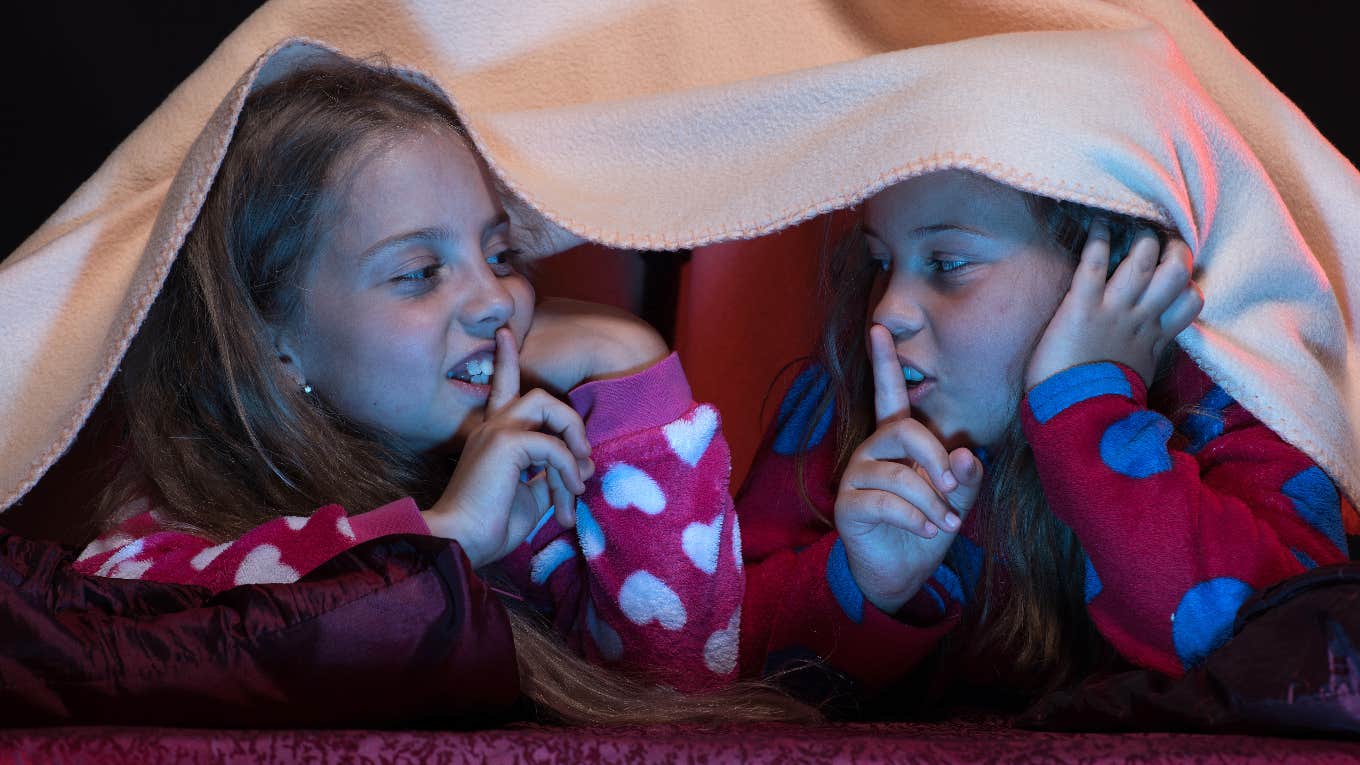Criminal Lawyer Explains Why She Doesn't Allow Her Children To Go To Sleepovers
The risk of something bad happening is far too great.
 Just dance / Shutterstock
Just dance / Shutterstock The topic of parents sending their children to sleepovers has been a longstanding debate, with some refusing to let their kids sleep at a stranger's house and others finding no issue with it at all. In a TikTok video, a criminal lawyer named Erin Bailey revealed that she falls under the former.
The criminal lawyer explained why she doesn't allow her children to go to sleepovers.
Bailey revealed that she doesn't allow her children to go to sleepovers and as a criminal defense attorney, it's something she's adamant about. Her number one reason had to do with the risk of sexual assault taking place in a stranger's home where her children would be sleeping over.
"While you may feel like you know the parents who are hosting the sleepover really well, and you know, love, and trust them, that's exactly who is committing sexual assault," Bailey observed. "Sexual assault against children is not committed by strangers in Target, it is not committed by random people on the street."
Bailey continued, saying that usually these types of assaults, whether it's with children or adults, are often committed by people we know personally and even trust. According to the Indiana Center for Prevention of Youth Abuse & Suicide, more than 90% of abusers are people children know, love, and trust — 30-40% of victims are abused by a family member, and 50% are abused by someone outside of the family who they know.
To avoid something nefarious and horrendous happening, Bailey chooses to play it safe.
"You may know the parents," she added, "but you don't know, necessarily, the neighbors, the grandparents, the aunts and uncles, the older siblings, the friends of the older siblings, who may all be brought into the equation."
She also pointed out that, as a parent, you don't know the rules of someone else's house, and they may be dramatically different than your own. For example, she specifically mentioned a family's rules about roaming the neighborhood and talking to people online. Bailey warned that there are too many variables to ignore as a parent and she would rather keep her children safe and away from scenarios that could put them in danger.
More and more parents are following Bailey's lead and refusing to let their kids attend sleepovers.
Many parents, especially online, agree with Bailey's fears about sending their kids to sleepovers for a variety of reasons, including cultural differences and fears of abuse. In a 2016 study of over 1,000 Australian parents, 89% of participants said they don't want their children attending a sleepover because of safety concerns.
However, despite parent's fears, many experts believe that instead of focusing on the harm that can happen, they should use the opportunity to reinforce prevention. Dr. Sara Douglas, a Manhattan pediatric neuropsychologist, told TODAY that parents should focus on asking questions about their own children.
"Can the child be flexible enough to follow someone else's rules in a new environment?" Douglas asked. "From an emotional perspective, can the child be in a new place and feel comfortable? And I might be stating the obvious, but does the child even want to go?"
 Photo: Just dance / Shutterstock
Photo: Just dance / Shutterstock
Douglas also advised parents to feel comfortable asking other parents questions about different possible scenarios, including plans for if the child wants to go home, food concerns, gun ownership, and who will be coming in and out of the home.
"You need to figure out a little more about where the discomfort is coming from," Douglas explained. "Is it separation anxiety and the child doesn’t want to be away from their parent? Is it more general anxiety where they’re just worried about what’s going to happen, like what they'll eat, or what happens if dinner time is different? Once you have that information, then you can decide the next approach."
Parents should already be having body safety conversations with their children, but it's not just enough for kids to hear that people aren't allowed to touch them inappropriately — they should also be informed on what to do if something like that happens. Parents can also provide their children with phones to use in case of an emergency while sleeping over at someone else's house.
In the end, sleepovers with other kids can be a fun experience, but parents should always take into account what's best and safest for their child.
Nia Tipton is a Chicago-based entertainment, news, and lifestyle writer whose work delves into modern-day issues and experiences.
